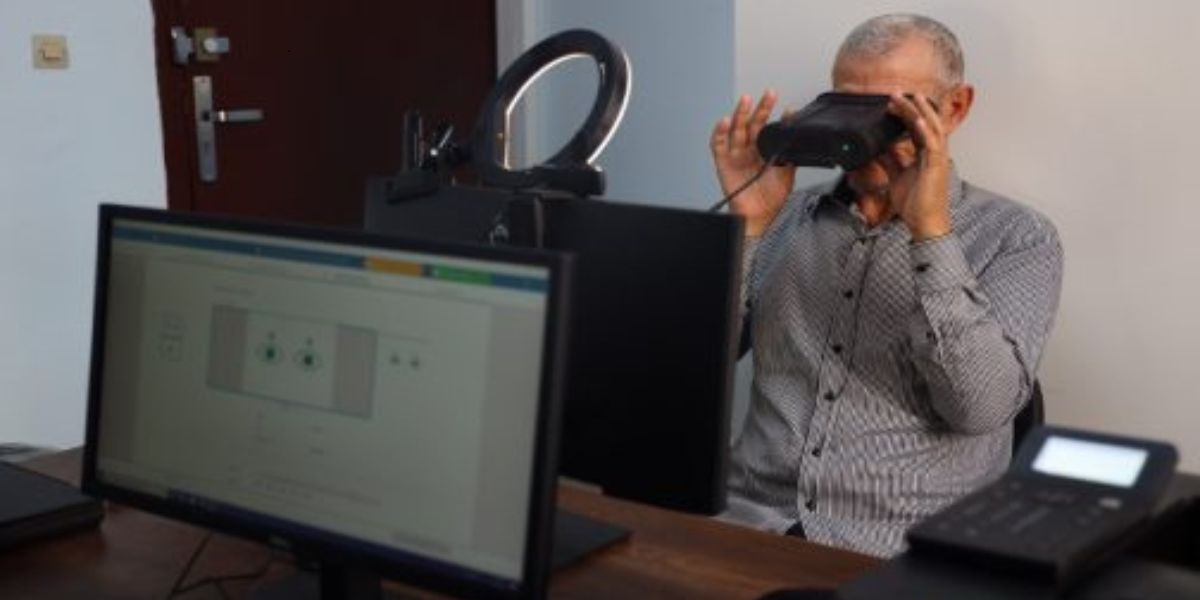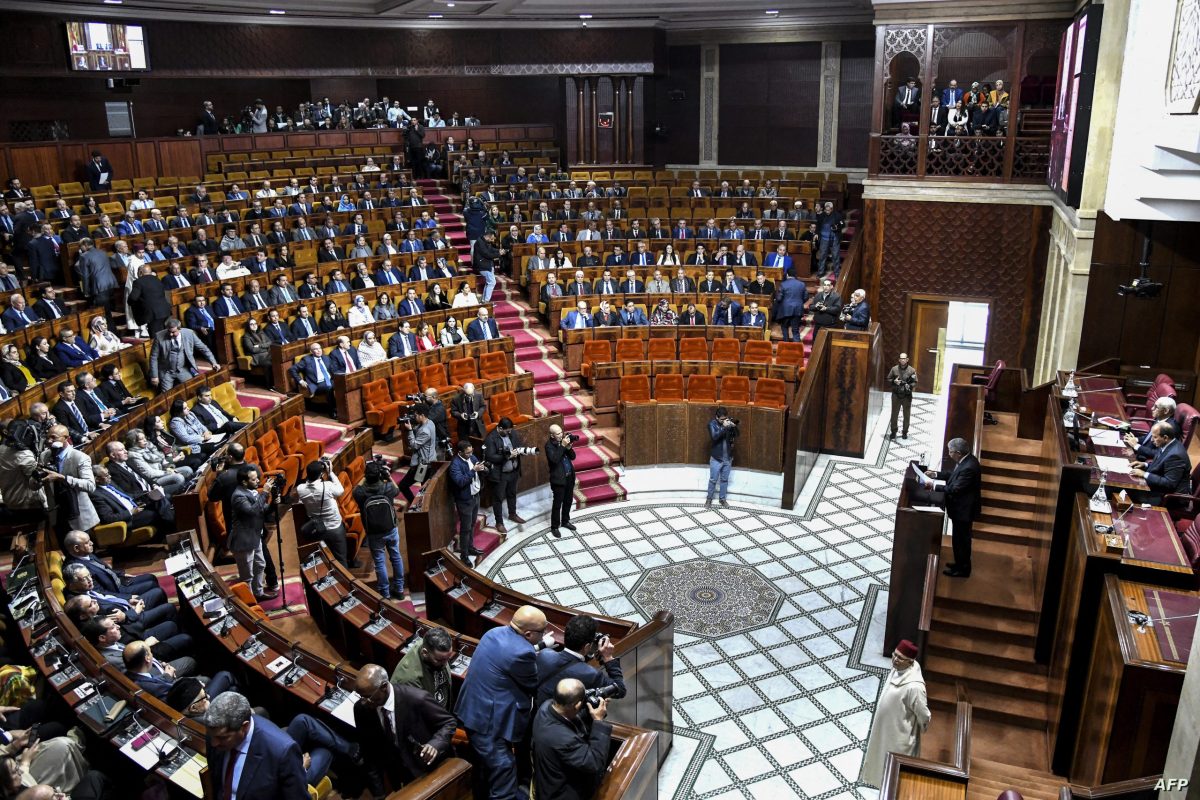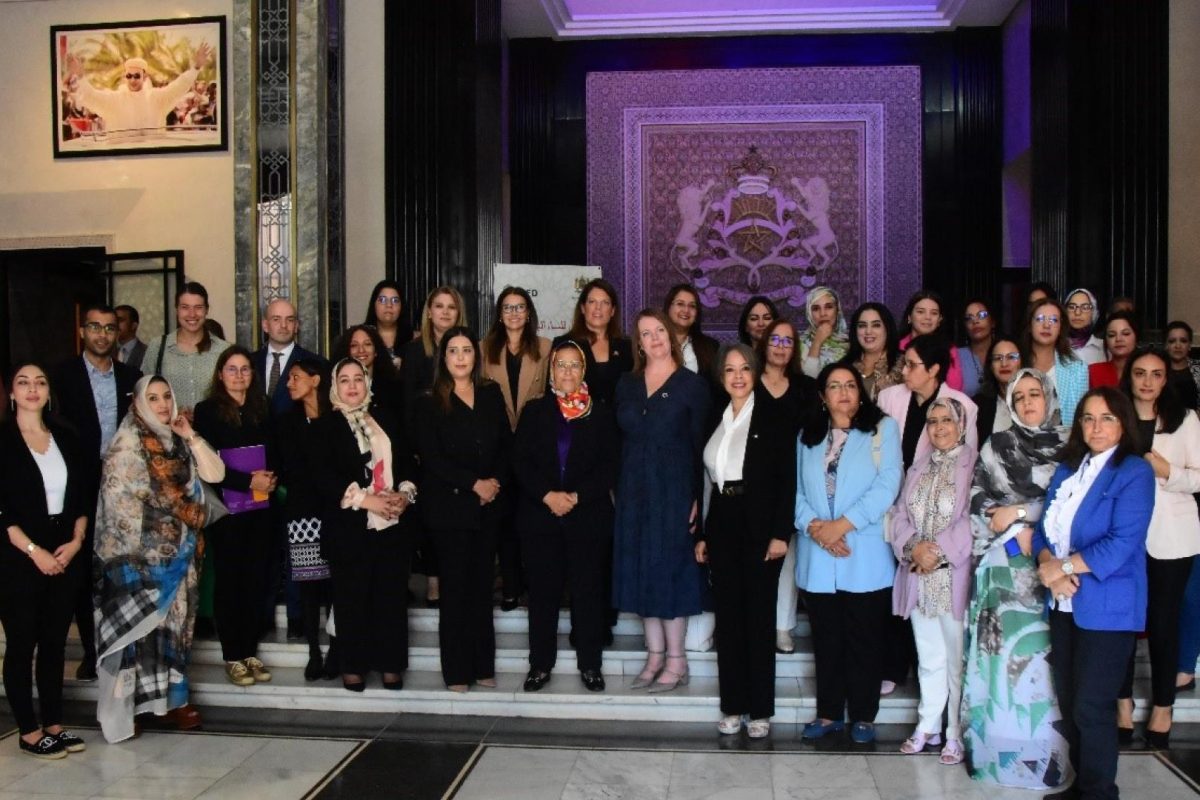[vc_row][vc_column][vc_column_text]
On January 18th, 2019 the Moroccan Institute for Policy Analysis organized in partnership with the European Endowment for Democracy (EED) the first edition of the Rabat Policy Forum under the theme “The Quality of Economic and Political Institutions”. This first edition has witnessed the participation of a record number of scholars from the US, Qatar, France, Ireland, Morocco and Tunisia, as well as politicians from Morocco and Tunisia and policy makers. In his opening speech, Dr. Mohammed Masbah, director of the Moroccan Institute for Policy Analysis, recalled the goal of the Rabat Policy Forum that the MIPA organizes every year to offer a platform for dialogue between policy makers, politicians and scholars.
The 2019 edition of the Rabat Policy Forum engaged with the question of political trust and the quality of political and economic institutions in changing societies. The choice of “political trust” as the main theme of this year’s edition of the Rabat Policy Forum is not random nor arbitrary. Regardless of the timely and necessary nature of the topic, it has however failed to attract the attention of local academics and scholars. Such failure can be attributed to two factors: the first is external and it relates to the socio-political environment that is marked by censorship which does not allow enough space for official academic institutions to engage with such questions. The second is an internal factor which relates to some sort of “self-censorship”; academics are generally reluctant to engage with sensitive topics for fear of what they might bring of political cost(s).
The Moroccan Institute for Policy Analysis believes that (re)engaging with such questions is both timely and necessary. It is timely due to the current state of political trust in the Arab world in general and in Morocco in particular and it is necessary because of the sine qua non postulate nature of trust as a factor in enhancing economic development and democratization. Situated against this background, the Rabat Policy Forum 2019 seeks to fathom the current state of political trust in institutions and how trust influences economic development and democratic transition. These objectives have been translated into a number of questions that the different participants in the conference have engaged with: What is the current situation of trust in Moroccan Institutions? How does trust in institutions impact development and democracy? And what challenges and opportunities are there for building trust in institutions?
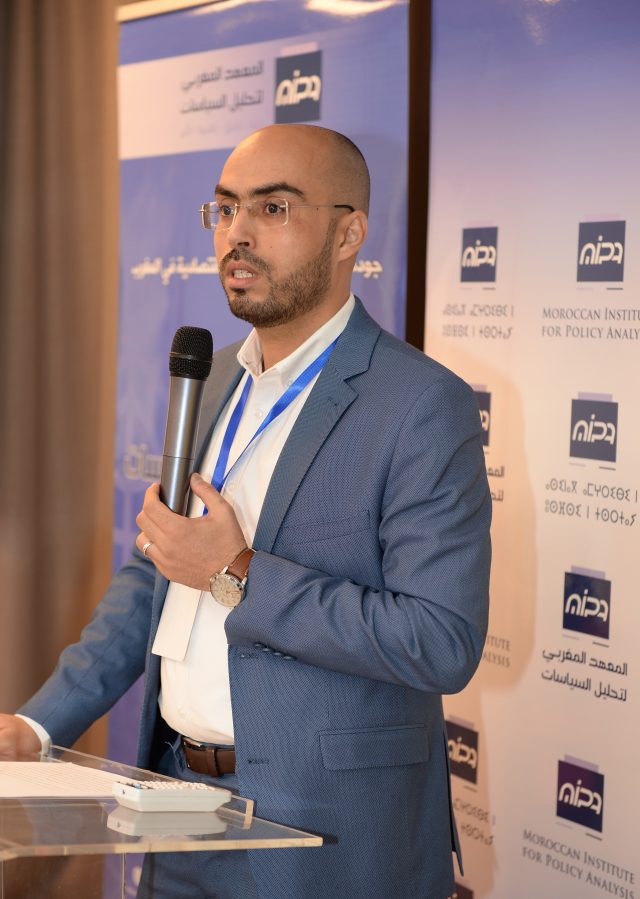
In delivering the first keynote speech, Dr. Mohammed Cherkaoui from George Mason University and Aljazeera Centre for Studies urged the need for a Moroccan sociological imagination in order to understand the personal problems through societal lenses. He quoted American sociologist C. Wright Mills who wrote in 1959, “Neither the life of an individual nor the history of a society can be understood without understanding both.” According to Mills, the life of the individual and the history of a given society are always intertwined and neither can be understood and fully accounted for without the other.
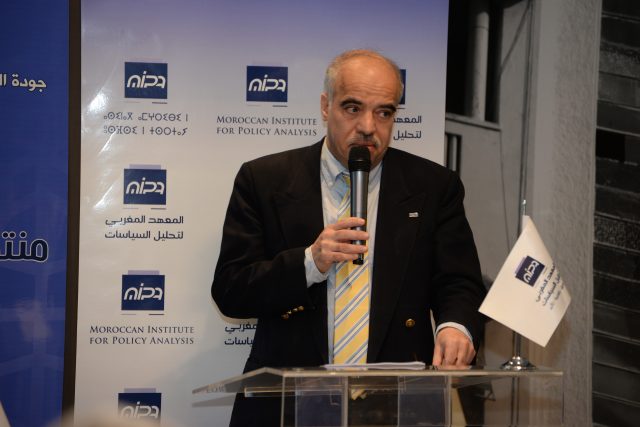
Trust between Democratization and Authoritarian Resilience
The first panel of the Rabat Policy Forum engaged with the question of trust between democratic transition and authoritarian resilience. In his talk “Trust Building in the Security Sector in Post-Revolutionary Tunisia”, Imed Daimi, a member of the Tunisian Parliament, reflected on the Tunisian experience in trust building in the security sector. He departed from reasserting the role of the army in making the 2011 Tunisian revolution a success. He discussed how the pre-2011 Tunisian state did not allow the army a strategic role for fear of any military coup attempts. The police institution on the other hand was directly linked to the president of the republic and had a key role in maintain the authoritarian state. The 2011 revolution which resulted in a major regime change has resulted in changing trust levels in the military institution. Trust in the police institution is also increasing regardless of all the difficulties faced.
Dr. Paola Rivetti, from Dublin City University in Ireland, reflected in her talk on “Functions of Political Trust in Authoritarian Settings”. The literature on political trust has long emphasized its relevance for democracy and democratic consolidation, given that it supplies polities with the necessary social and political capital to either remain stable or consolidate democracy. Dr. Rivetti’s talk moves on from these assumptions to review the extant literature on political trust in authoritarian settings. It is contended that the main contribution of this literature to broader studies of political trust has been the questioning of the inherent connection between political trust and democracy, which implies that political trust cannot exist or is in very low supply in authoritarian settings.
Extending this conversation to a rather new dimension, Dr. Abbas Boughalem’s talk on “Society and State: Towards a New Social Contract” argues that for Maghrebi and North African countries to respond to the different challenges and threats they are facing, they must build democratic institutions that can respond to the diverse populations they represent. According to Dr. Boughalem, building democratic states and institutions depends heavily on working towards new social contracts.
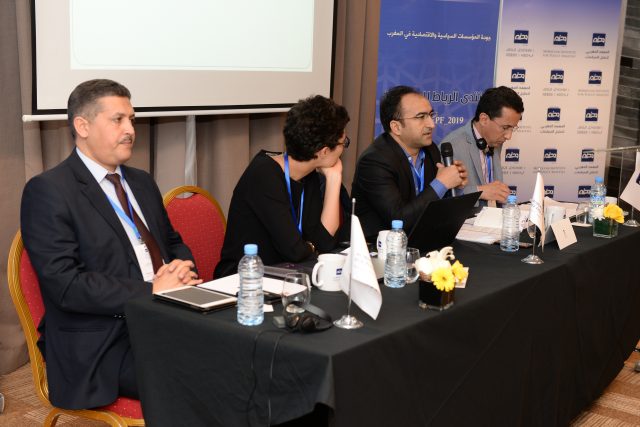
(Mis)Trust in State Institutions
The second panel debated the current state of (mis)trust in state institutions. Dr. Abdelatif Chentouf, Head of the Moroccan Magistrates Club, brought to light the impact of reforms on trust in Moroccan justice after the 2011 constitution. The delay in implementing the reforms that the 2011 constitutions came with has had serious implications on trust in the Moroccan justice. Dr. Chentouf argues that the legacy of 7 years since 2011 is only the implementation of two laws, both of which focused on the shape and form and not the content. Dr. Mohammed Berraou’s presentation on “Audit, Anti-Corruption Bodies and the Question of Trust” details the role of new audit and anti-corruption institutions and how such institutions help (re)build political trust. Rachid Aourraz’s presentation has brought into light how trust in institutions influences investments. According to Aourraz, the level of trust people have in institutions influences investments. Higher levels of trust will entail higher levels of investments and it is the latter that help advance economic prosperity and development.
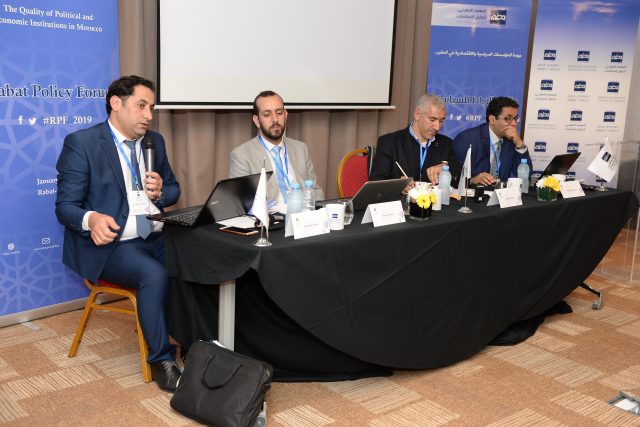
The afternoon sessions were opened with a key note speech by Professor Sonja Zmerli, from Sciences Po Grenoble, France. Professor’s Zmerli’s speech on “Political Trust in the MENA Region: Specificities and commonalities with Established Democracies” departed from the question “what makes a political system stable?” to argue that it is the level of trust citizens have in the official institutions of their country that is responsible for social and political stability.
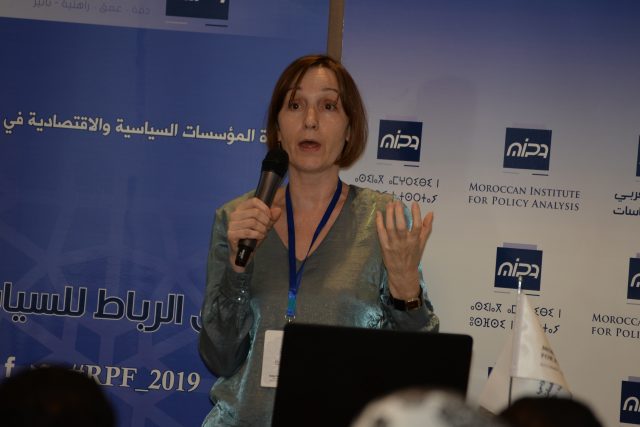
Social Movements, Citizenship and Political Trust
The Brookings researcher Anna Jacobs discussed in her talk on “People, Protest, and Parliament: Challenges and Opportunities for Empowering Democratic Institution in Morocco” how Moroccans have a higher level of trust in the institution of the Monarchy. Jacobs has also emphasized that in the case of Morocco, there is no institution strong enough to play the role of the opposition alongside with the institution of the Monarchy. According to Jacobs, political parties in Morocco are weak and uncapable of appealing to the citizens. The strength and relevance of political parties in Morocco are not determined by their political ideologies or agendas but rather by the degree of their closure to the palace.
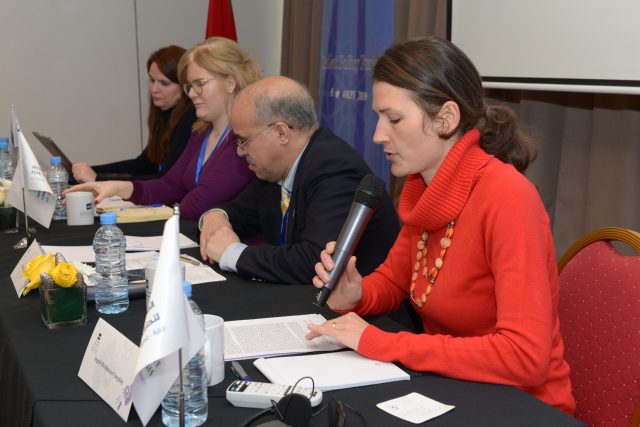
Continuing this conversation, Kathya Berrad in her talk on “Institutional Changes: An Organic Perspective”, argues that while it is important to comprehend and understand international experiences, effective institutions are the ones that are the outcome of a political process reflecting collective choices. Institutions of a society depend on the nature of political institutions and the distribution of political power in society. As such establishing new political/economic institutions or reforming existing ones should be part of a social contract. Merely importing institutional models from other countries have not proven efficient and can further be associated with hegemonic power or neocolonialism. Kathya stresses the need to place the debate within the political process of a country in an organic way rather than a mechanical one. Ingrid Heidlmayr-Chegdaly’s talk on “Political Mistrust, In-Active Citizenship and Depoliticization” argues that the lack of citizen’s trust in political institutions and in-active citizenship is the outcome of depoliticization and technocratisation of the political sphere.
[/vc_column_text][/vc_column][/vc_row]
MIPA Institute
MIPA is a non-profit independent research institution based in Rabat, Morocco. Founded by a group of transdisciplinary researchers, MIPA’s mission is to produce systematic and in-depth analysis of relevant policy issues that lead to new and innovative ideas for solving some of the most pressing issues relating to democracy.
